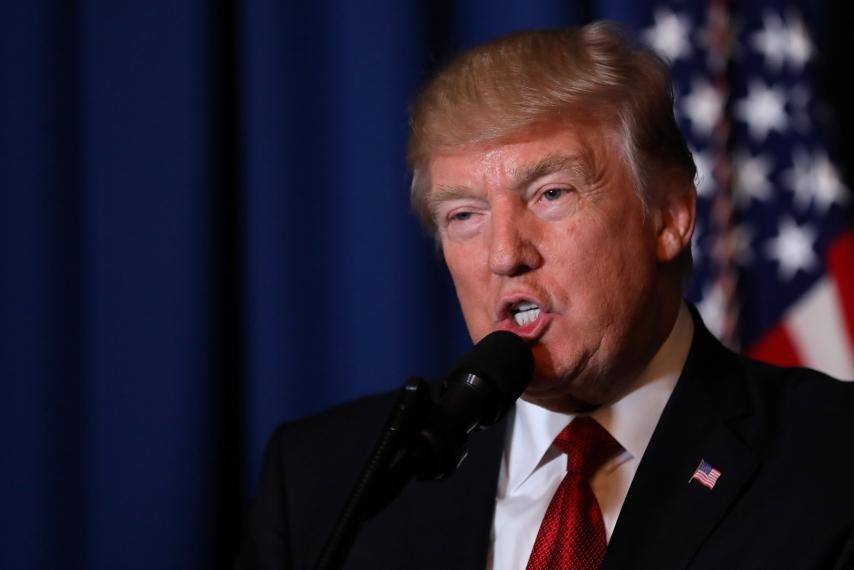


|
Fears of confrontation between Russia and the West have been
running high since Trump said on April 11 that missiles "will be
coming" after the suspected chemical weapons attack in the Syrian town
of Douma on April 7, and lambasted Moscow for standing by Syrian President
Bashar al-Assad.
"Never said when an attack on Syria would take place. Could
be very soon or not so soon at all!" the US president said in his latest
early morning tweet on April 12.
French President Emmanuel Macron said France has proof the Syrian government
carried out the attack, which aid groups have said killed dozens of people,
and will decide whether to strike back when all the necessary information has
been gathered.
"We have proof that last week ... chemical weapons were
used, at least with chlorine, and that they were used by the regime of Bashar
al-Assad," Macron said, without offering details of any evidence.
"We will need to take decisions in due course, when we
judge it most useful and effective," he told broadcaster TF1.
Prime Minister Theresa May prepared to convene a special cabinet
meeting at 1430 GMT to weigh whether Britain should join the United States
and France in a possible military action.
May recalled ministers from their Easter holiday to debate
action over what she has cast as a barbaric poison gas attack in Douma, then
rebel-held, just east of the capital Damascus.
There were signs, though, of a global effort to head off a
direct confrontation between Russia and the West. The Kremlin said a crisis
communications link with the United States, created to avoid an accidental
clash over Syria, was in use.
"The situation in Syria is horrific, the use of chemical
weapons is something the world has to prevent," Britain's Brexit
minister David Davis said.
"But also it's a very, very delicate circumstance and we've
got to make this judgment on a very careful, very deliberate, very well
thought-through basis."
NAVAL MANOEUVRES
Syria's military has repositioned some air assets to avoid
missile strikes, US officials told Reuters. Locating them alongside Russian
military hardware might make Washington reluctant to hit them.
Russia, Assad's most important ally in his seven-year-old war
with rebels, said it had deployed military police in Douma on April 12 after
the town was taken over by government forces.
"They are the guarantors of law and order in the
town," RIA news agency quoted Russia's defence ministry as saying.
Assad said any Western action "will contribute nothing but
an increase in instability in the region, threatening international peace and
security", Syrian state TV reported.
The Russian military said it had observed movements of US Navy
forces in the Gulf. Any US strike would probably involve the navy, given the
risk to aircraft from Russian and Syrian air defences. A US guided-missile
destroyer, the USS Donald Cook, is in the Mediterranean.
Moscow's ambassador to Lebanon, Alexander Zasypkin, warned on
April 11 any US missiles fired at Syria would be shot down and the launch
sites targeted.
The Syrian conflict has increasingly widened the rifts between
Moscow, Washington and European powers and inflamed the bitter rivalries that
run across the Middle East.
Syria and its allies Russia and Iran say reports of the attack
were fabricated by rebels and rescue workers in Douma and have accused the
United States of seeking to use it as a pretext to attack the government.
Nervous world stock markets showed signs of recovery after Trump
signalled military strikes might not be imminent.
|
Source: NDO